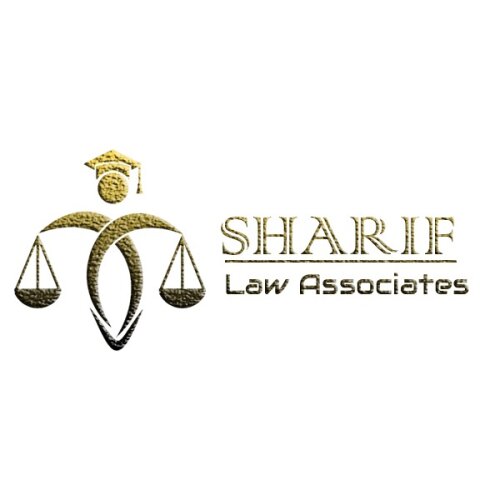Best Government Relations & Lobbying Lawyers in Pakistan
Share your needs with us, get contacted by law firms.
Free. Takes 2 min.
Or refine your search by selecting a city:
List of the best lawyers in Pakistan
About Government Relations & Lobbying Law in Pakistan
Government relations and lobbying in Pakistan involve influencing and advocating policy decisions made by governmental officials. While lobbying, in its traditional sense, is not as formally recognized or structured in Pakistan as in Western nations, various forms of advocacy and governmental liaison work exist. These activities are crucial for businesses, non-governmental organizations, and interest groups aiming to shape policies in their favor or gain governmental support for various initiatives. Professionals in this field often engage in relationship-building and strategic communication to influence decision-makers and legislative processes.
Why You May Need a Lawyer
Legal assistance in government relations and lobbying is essential in numerous situations:
1. Navigating Complex Regulations: A lawyer can help you understand and comply with the complex regulatory framework surrounding lobbying and government interactions.
2. Advocacy Strategy: Legal advisors can assist in formulating advocacy plans that are both effective and compliant with local laws.
3. Representation: A lawyer can represent your organization in negotiations or discussions with government officials.
4. Dispute Resolution: In case of conflicts or disputes in government dealings, legal help can be critical.
5. Drafting and Reviewing Documents: Lawyers can draft or review contracts, memoranda, and other documents to ensure they align with relevant policies and laws.
Local Laws Overview
Lobbying in Pakistan is primarily governed by a broader set of laws that regulate ethical conduct, anti-corruption measures, and the activities of businesses and organizations in their dealings with government entities. Key legal frameworks include:
1. Anti-Corruption Laws: Prevent unethical practices in government dealings.
2. Competition Laws: Regulate fair competition between businesses in their attempt to influence government decisions.
3. Communication Regulations: Govern the transparency and acceptable modes of communication with the government.
4. Regulatory Compliance: Sector-specific regulations that businesses must adhere to during lobbying efforts.
Frequently Asked Questions
What is lobbying?
Lobbying usually involves efforts by individuals or organizations to influence governmental policies or decisions. It often includes advocacy and communication efforts targeted at policymakers and officials.
Do I need to register as a lobbyist in Pakistan?
Unlike some other countries, Pakistan does not have a formal system requiring lobbyist registration. However, maintaining transparency and following ethical practices is encouraged.
What regulations govern lobbying in Pakistan?
While there isn't a specific lobbying law, several regulations, including anti-corruption, competition, and sector-specific laws, guide these activities. Adhering to ethical conduct and transparency is essential.
Can small businesses engage in lobbying?
Yes, small businesses can engage in lobbying to influence policy decisions that affect their operations or industry. Legal guidance can help navigate the process effectively.
What ethical considerations are involved in lobbying?
Lobbyists in Pakistan must adhere to ethical standards, such as honesty, transparency, and avoiding any form of undue influence or bribery.
How can a lawyer help in lobbying activities?
A lawyer can guide compliance with applicable laws, devise strategies for effective lobbying, and represent clients in discussions with government officials.
Is there a difference between lobbying and advocacy?
While both involve efforts to influence decision-makers, lobbying is often more formal and involves direct interaction with policymakers, whereas advocacy can be broader and public-focused.
What are the risks of not complying with lobbying regulations?
Non-compliance can result in legal penalties, damage to reputation, and potential business disruptions.
How can I ensure my lobbying efforts are compliant?
Engaging a qualified legal professional can help ensure your lobbying activities are compliant with all relevant laws and ethical standards.
What is the role of government relations professionals?
Government relations professionals develop strategies to engage effectively with government officials and promote their organization's interests within the framework of applicable laws.
Additional Resources
Consider engaging with the following resources for guidance and updates:
1. The Ministry of Law and Justice: Provides official legal documentation and updates.
2. The Competition Commission of Pakistan (CCP): Ensures compliance with competition laws that overlap with lobbying efforts.
3. The Pakistan Business Council: Offers resources and support for businesses engaging with governmental entities.
4. Legal Firms specializing in governmental relations and lobbying.
Next Steps
If you need legal assistance with government relations and lobbying in Pakistan, consider the following steps:
1. Identify your needs: Clearly define what you aim to achieve through government lobbying.
2. Choose a law firm: Look for a law firm experienced in government relations and lobbying.
3. Schedule a consultation: Discuss your objectives and seek preliminary advice.
4. Develop a strategy: Work with your lawyer to devise a comprehensive plan that complies with local laws.
5. Stay informed: Regularly update your legal strategy based on changing laws and policies.
Lawzana helps you find the best lawyers and law firms in Pakistan through a curated and pre-screened list of qualified legal professionals. Our platform offers rankings and detailed profiles of attorneys and law firms, allowing you to compare based on practice areas, including Government Relations & Lobbying, experience, and client feedback.
Each profile includes a description of the firm's areas of practice, client reviews, team members and partners, year of establishment, spoken languages, office locations, contact information, social media presence, and any published articles or resources. Most firms on our platform speak English and are experienced in both local and international legal matters.
Get a quote from top-rated law firms in Pakistan — quickly, securely, and without unnecessary hassle.
Disclaimer:
The information provided on this page is for general informational purposes only and does not constitute legal advice. While we strive to ensure the accuracy and relevance of the content, legal information may change over time, and interpretations of the law can vary. You should always consult with a qualified legal professional for advice specific to your situation.
We disclaim all liability for actions taken or not taken based on the content of this page. If you believe any information is incorrect or outdated, please contact us, and we will review and update it where appropriate.
Browse government relations & lobbying law firms by city in Pakistan
Refine your search by selecting a city.

















